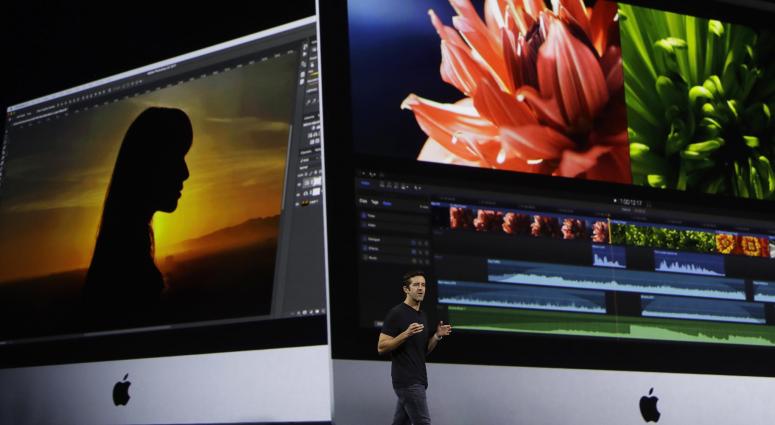Apple unveils VR features on Mac, new iPhone software
Tue 06 Jun 2017, 04:54:51

Apple nodded to several up-and-coming technology trends, unveiling new device features touching on virtual reality, online privacy and a form of artificial intelligence called machine learning.
New iMacs unveiled on Monday at Apple’s annual conference for software programmers are getting better displays and graphics capabilities. Apple said that makes the Mac a great platform for development virtual reality experiences.
But Apple is late to the game on VR. Samsung and Google already have VR systems centred on their smartphones. Facebook, HTC and Sony have high-end VR systems, too.
Virtual reality has been described as the next big thing for decades. But so far, interest has been strongest among gamers, developers and hardware makers rather than everyday users.
Apple’s entry into the market could change this. Its entry into digital- music sales streaming with iTunes, or the smartphone market with the iPhone, upended those industries and took them to the masses.
Mac gets an
upgrade
upgrade
Apple CEO Tim Cook unveiled the latest operating system for Mac computers. Called High Sierra, it recognises more faces automatically, which should make it easier to organise photos, and will offer more photo editing tools.
Safari, Apple’s web browser, seeks to make users’ online experience smoother and less annoying. It will allow users to automatically block auto-play videos by detecting videos that shouldn’t be playing when you open a webpage to read an article, for example.
The browser’s new “intelligent tracking prevention,” meanwhile, will use machine learning to identify and block digital—ad trackers in order to keep advertisers from following and profiling users. It will not block the ads themselves, though.
Watch the watch
Apple is also updating the operating software for its Apple Watch, including new watch faces, more personalized alerts that use machine learning to tailor information to you based on your routines and tastes.
No Comments For This Post, Be first to write a Comment.
Most viewed from Business
AIMIM News
Latest Urdu News
Most Viewed
May 26, 2020
Do you think Canada-India relations will improve under New PM Mark Carney?
Latest Videos View All
Like Us
Home
About Us
Advertise With Us
All Polls
Epaper Archives
Privacy Policy
Contact Us
Download Etemaad App
© 2025 Etemaad Daily News, All Rights Reserved.






























